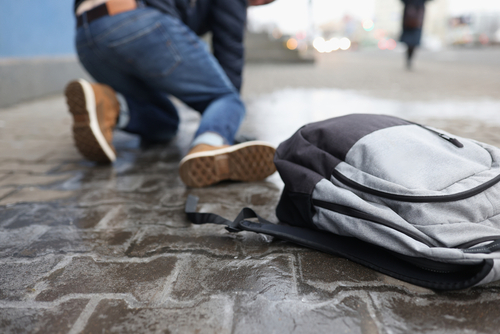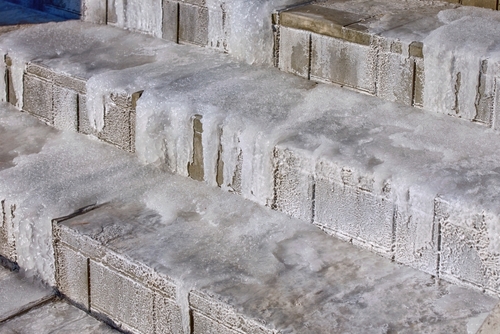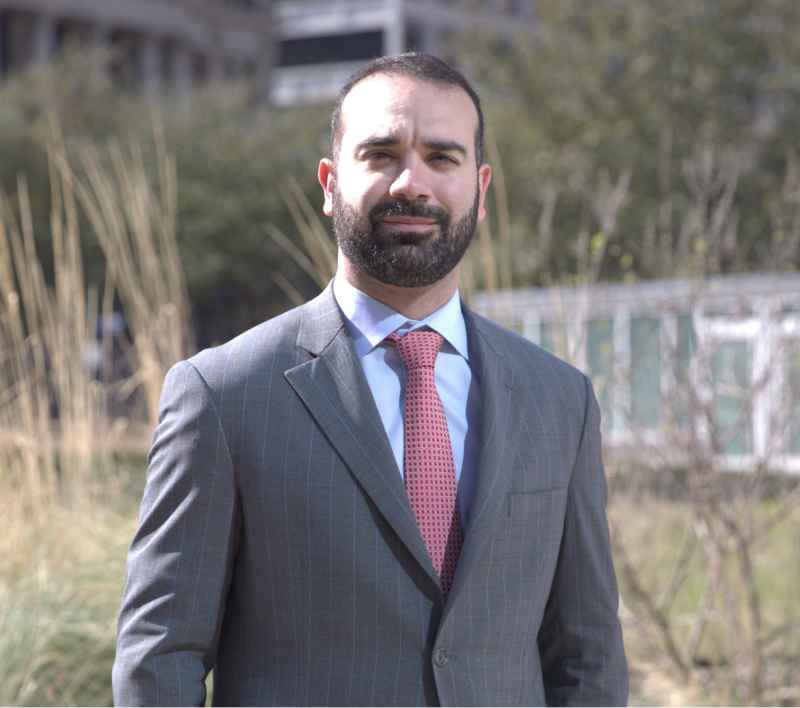It might sound straightforward: you slip, you fall, you get hurt, and someone should be responsible. But liability in a slip and fall case rarely follows a tidy line. Property owners aren't always to blame. Tenants might share responsibility. Outside contractors may be involved. Sometimes, it's a combination of poor maintenance policies, questionable leasing agreements, or even municipal indifference.
To figure out who's liable, you'll need to look well beyond the floor. A skilled Houston slip and fall lawyer will work to identify who is to blame for your injury and pursue maximum compensation. A legal professional is ready to give you a free consultation and spell out your legal options.
Property Ownership Doesn't Guarantee Fault

Just because someone owns the property doesn't automatically mean they're liable for your fall. Ownership comes with legal duties, but the nature of those duties depends on the visitor's status, the property's use, and even what part of the building you were in. A commercial landlord, for instance, may not be liable for a spill in a leased café's kitchen. But that same landlord might be accountable if a stairwell light's been out for weeks.
A slip and fall accident attorney will dig through lease agreements, maintenance contracts, and service logs to see who had actual control over the area where you fell. If someone other than the property owner was responsible for upkeep, liability can shift. That distinction matters because you can't assume the building's deed holder has anything to do with the day-to-day condition of the floor you fell on. Slip and fall accidents require careful investigation to determine which party failed to maintain a safe environment.
Tenants Can Be Liable – But Not Always Alone
Commercial leases often shift responsibility for daily maintenance to the tenant. In shopping centers, restaurants, and even medical offices, tenants are typically responsible for cleaning, posting warning signs, and submitting repair requests. If you slipped on a wet tile inside a retail store, the business operator may be the one who failed to act.
But here's where it gets complicated: some maintenance responsibilities overlap. A business may handle cleaning, but the landlord may retain responsibility for roof repairs. Suppose a leak dripped onto the shop floor from a neglected rooftop AC unit. If that's the case, both parties can share legal fault. A Houston slip and fall lawyer will identify where those duties overlapped and who failed to follow through.
Multiple Liable Parties? It Happens More Than You Think
You might picture a single bad actor behind a slippery floor or broken stairs. But in many premises liability cases, there's more than one party involved. Janitorial companies, snow removal crews, third-party vendors – they all play roles in how safe or unsafe a space becomes.
A property management firm might outsource its winter services. If the snowplow crew arrived late or used the wrong de-icer, that contractor can become part of the equation. A slip and fall accident attorney will subpoena contracts, review communication logs, and find out who had the final say on safety decisions. Should I get a lawyer? Yes, because identifying the right defendant often requires legal tools and experience you won’t have on your own.
Blame Can Shift Based on Timing
Even if someone was technically in charge, liability might still hinge on how long the hazard existed. If you suffered a head injury after falling on a freshly spilled drink in a grocery store aisle, the store might argue it had no reasonable opportunity to clean it up. On the other hand, if a puddle sat there for hours while staff walked by, liability becomes much easier to assign.
That's why timestamps matter. Surveillance footage, employee shift logs, and even customer complaints can all point to who knew what and when. An attorney will use that timeline to strengthen your case and focus on parties who had both notice and time to act but didn't.
Public Property Brings a New Set of Rules
If your fall occurred on public property, like a city sidewalk or county courthouse, liability gets more complicated. Governments protect themselves through laws that limit when, how, and even if they can be sued. In many states, you'll face strict deadlines for filing notice, sometimes as little as 30 or 60 days. In others, you have six months. However, those protections don't make government entities immune from all responsibility.
A slip and fall accident attorney will review whether the city or state had a duty to maintain that sidewalk, whether complaints were filed in the past, and whether funding or inspections were neglected. You won't be able to rely on the same standards that apply to private property owners. Instead, you'll need to show that the government had prior notice of the dangerous condition or that it violated a legal duty to inspect and repair.
Temporary Hazards Raise Long-Term Questions
One of the most overlooked issues in liability involves temporary hazards, such as freshly mopped floors, icy steps, or ongoing repairs. These aren't permanent defects, but they still cause plenty of accidents. So, who's to blame?
It depends on how well those temporary risks were communicated. A wet floor sign might shift responsibility away from the store if it was placed in the right location and clearly visible. But if the sign was hidden behind a trash can or placed in a completely different area, that defense won't hold.
An attorney will assess whether those efforts were enough to warn someone in your position. Not every warning is legally sufficient, and courts recognize when a sign is merely a facade for deeper maintenance failures. The importance of hiring a slip and fall lawyer is knowing when surface-level precautions don’t hold up legally—and making sure that doesn’t undermine your claim.
Construction Zones and Unsafe Conditions
In some cases, construction or renovation contributes to the hazard. A loose carpet edge or unmarked hole may be the contractor's responsibility, not the property owner's. However, many construction companies argue that they followed client instructions and push liability back to the party that hired them.
If you fell in a building undergoing repairs, a Houston slip and fall lawyer will trace every contract and work order. You'll want to know who controlled that specific area, whether proper signage and barriers were in place, and whether the project timeline left hazards exposed.
Injuries on Business Property After Hours
Imagine slipping outside a closed restaurant after rainwater pooled near the entrance. You weren't inside shopping or eating – you were walking past or cutting through. That matters.
The law treats invited customers differently from passersby. However, business owners must still keep their property reasonably safe, even outside business hours. If a known hazard poses a risk to pedestrians or nearby foot traffic, that obligation may still apply.
An attorney will look at whether the danger was foreseeable. If the business had a history of drainage problems and ignored long-term fixes, that can open the door to liability, even if the business was closed at the time of the incident. If you're unsure how to proceed after an injury like this, it's a clear sign: I need a lawyer who can evaluate these details and build a strong case.
When Property Managers and Building Owners Disagree
In multi-tenant buildings or office complexes, the building owner may hire a separate property manager to handle maintenance. But these relationships can be cloudy. If a tenant files a work order that the property manager ignores, who's at fault?
The answer depends on who had final authority over the issue. If the building owner handed over all control of maintenance to a management company, the fault may lie there. But if that company only handled administrative tasks while the owner retained maintenance staff, blame might shift back.
A slip and fall accident lawyer will break down those agreements and correspondence. Emails, contracts, and property records can reveal which party dropped the ball and left a hazard in place.
Seasonal Hazards: Who's Responsible for Ice, Leaves, or Flooding?

When fall leaves blanket a sidewalk or snow melts into slush in front of a shop, things get tricky. These aren't defects in flooring or infrastructure. They're part of the natural cycle, but property owners still have duties when nature becomes dangerous.
The law doesn't require perfection. But if a business owner knows heavy rain floods the parking lot or freezing temps turn stairs into a skating rink, they're expected to respond. Timely clearing, salting, and repairs can reduce liability. On the other hand, inaction – especially when the hazard is recurring – can build a strong case for fault.
An attorney will review past service logs, weather reports, and incident records. If the hazard occurred year after year with no effort to fix the issue, you'll have a strong footing for your claim. This is exactly where a lawyer can help you – by connecting those overlooked patterns to a legal strategy that holds the right party accountable.
Private Homes and Personal Injury Claims
Falls at private residences raise different liability questions. If you slip on a friend's icy walkway or fall on a loose floorboard at a relative's house, can you sue? The answer's yes – but you'll need to prove the homeowner knew or should have known about the hazard and failed to correct it.
This gets even more complex in rental properties. If you slipped on a broken step in a rented apartment, both the landlord and the tenant can be involved. The landlord might be responsible for structural issues. But if the tenant created the danger – a spill, a cluttered hallway, or furniture placement – liability can shift.
A Houston slip and fall lawyer will identify whose legal duty was triggered by the condition that caused your fall. Personal relationships often complicate these claims, but the law focuses on duties and responsibilities, not feelings.
Retail Stores and Chain Liability
National retailers and franchise operations create another layer of complexity. When you fall at a big-box store or a chain restaurant, you're not just dealing with the manager on duty. The corporate entity behind the brand may also be held liable, especially if its policies created unsafe conditions.
If corporate sets the cleaning schedule, determines staffing levels, or delayed critical repairs, that can form the basis of a claim. Your attorney will request internal policy documents, corporate emails, and prior inspection results to build your case. Select a personal injury lawyer who knows how to challenge corporate procedures and expose the decisions that put people at risk.
Even franchises that appear independent often have contractual obligations that tie them back to the parent company. Liability can follow those ties.
Hotels and Common Area Injuries
Hotels present unique liability scenarios due to the combination of private rooms and public spaces. A fall in your bathroom may relate to poor design or slippery tile, but the hotel can argue you misused the space. A fall in the lobby, on the other hand, falls squarely within the hotel's duty to protect its guests.
Cleaning schedules, security logs, and maintenance reports all come into play. A slip and fall accident lawyer will look at what the hotel knew when it knew, and whether its prevention efforts measured up.
Some hotels outsource cleaning to third-party vendors. If those vendors skip routine maintenance or leave water on the floor, you may have claims against both the hotel and its contractor.
Mechanical Failures Can Be Just as Dangerous as Wet Floors
When you think about a slip and fall, your mind probably jumps to a puddle or a patch of ice. But many incidents occur on mechanical systems that should function predictably. An escalator that jolts or an elevator that stops inches above the floor can create unexpected hazards. Cracked or buckled flooring near thresholds only adds to the risk. In such situations, responsibility doesn't rest solely with the building's owner.
A Houston slip and fall lawyer will review maintenance logs, inspection certificates, and technician reports. Elevators and escalators are heavily regulated for a reason. If routine checks were skipped or repair requests were ignored, that paper trail becomes critical. Licensed professionals must regularly sign off on these systems, and if those records are missing or falsified, the path to liability becomes much clearer.
Accountability Beyond the Building Owner
Sometimes, property owners delegate system maintenance to third-party firms. That doesn't shield them from legal responsibility, but it does expand the field of potential liability. If the elevator contractor failed to diagnose a known defect or the escalator repair team used outdated parts, your claim may involve multiple parties.
An attorney will map out every contract tied to the malfunctioning equipment. Who approved the work? Who certified its condition? If the system had known flaws and the building continued to use it, that history strengthens your case. A lawyer can help you pinpoint these breakdowns in oversight and hold the responsible parties accountable.
A Skilled Lawyer Will Determine Liability and Take Action

You don't need to figure out liability on your own. A Houston personal injury lawyer will analyze every party's duties, missed opportunities, and attempts to dodge responsibility. You'll have a clear picture of who owed you safety and who failed to deliver. Let an attorney work on your behalf to pursue justice. Contact one as soon as you can for a free case review.